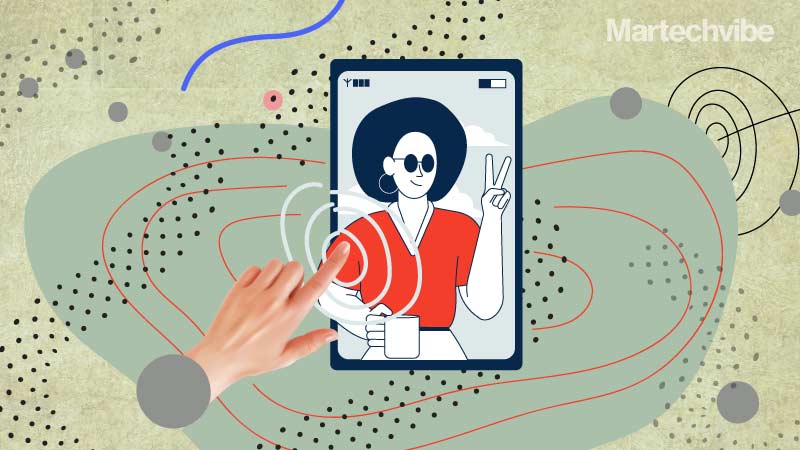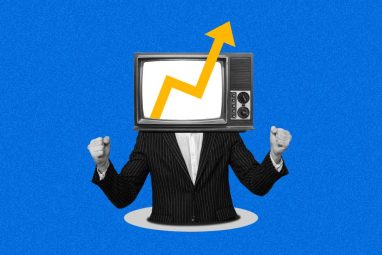Can AI Help You Pick The Right Influencer?
Finding the right influencer with the reach and niche that aligns with your brand can be tricky. Marketers are using algorithms to spot profiles with fake followings, identify patterns of interest and amplify brand messages Audiences are smarter than ever and less impressionable to cookie-cutter marketing tactics. If you are a brand that is looking […]
Topics

Finding the right influencer with the reach and niche that aligns with your brand can be tricky. Marketers are using algorithms to spot profiles with fake followings, identify patterns of interest and amplify brand messages
Audiences are smarter than ever and less impressionable to cookie-cutter marketing tactics. If you are a brand that is looking long-term and selling a sense of belonging rather than a product or a service, chances are that influencer marketing is already a part of the strategic plan.
A brand is never so rightly exposed as on social media when enthusiastic influencers talk about it in front of their followers. Influencers have become a multimillion-dollar industry. So much so that Hollywood hot seat Los Angeles now has mansions dedicated to these Instagram and Tik Tok influencers, where they come to mingle and create content with the hopes of going viral.
The way they have clinched the reach factor is unparalleled. Thus, they are now an indispensable marketing tool for brands. However, how does one tap into this large pool? It is certainly no manual exercise.
There are questions like what kind of influencers do you need? Do you need macro- (with 500K+ followers) or micro-influencers (up to 50K followers)? How is this need determined?
Enter the possibility of an algorithmic search for influencers.
The market is seeing a host of software that automates the search for influencers. They delve deep into the metrics laying out perfect plans for the marketers.
AI-powered Search
The programmes infused with AI essentially play the role of matchmakers between companies and influencers, often drawing exhaustive lists to choose from. Each software offers unique features.
Let’s take Affable AI, for instance.
Affable’s database is more than just a list. It is an extensive project that matches a company with a perfect candidate. Its AI gives detailed demographic insights into an individual’s history on Facebook, Instagram, and TikTok. It also predicts the influencer’s impact on the brand or product page. Lenovo and Clarins use Affable as it helps them understand ROI.
For more filtered search and discovery, tools like Upfluence come in handy with their engines. These tend to have millions of influencer profiles that are updated and indexed by AI frequently. Clients can pick from this lot by simply using keywords. Some platforms even allow users to highlight one keyword from another. The search can be narrowed based on location and social platform as well.
Some softwares provide a marketplace for influencers – this is like UpWork but for influencers. Brands work with and review these social media personalities. These ratings and testimonials are public, making it easier for other brands to select their influencers. Post for Rent is a good example of this service.
Platforms like Post for Rent and Influence.co are essentially market-creators. Brands are only required to create a brief for their campaign. The process of finding and managing influencers and their content, scrutinising through profiles and data, and researching audiences is taken care of by the AI-powered interface.
Post for Rent’s interference is also available across devices. So when a brand posts a campaign, it reaches influencers who can show their interest.
Influence.co has a different approach – it helps brands sustain authentic and long-term relationships. Influence.co now has a social network and marketplace with over 2,50,000 members (brands and influencers). The influencer activity is visible to brands on their feed. And brands are likely to pick what they feel is the best.
Spotting Fake Followers
We have spoken at length about choosing the right influencers. However, how do we weed out the fraudulent ones?
Many influencers tend to have fake followers, so it’s essential to be aware. You can spot fake influencers if they have – poor content but a high following; they publish little content but have high engagement, or they have a very high or low engagement for their number of followers.
All that said, it is prudent to be aware of the overall engagement rate, quality of work and reach of the prospective influencers.
This sounds like a lot of work and loads of authentication. Let’s see how algorithmic methods can optimise the experience so a business can comprehend its campaign’s chances of success.
AI-powered platforms can help spot fake followers as they collect information from various sources and cluster it. They take into account those influencers that have real followers and likes from them. The algorithm then ranks influencers and forms the global top influencers’ lists, updated daily.
For example, HypeAuditor analyses the influencer market thoroughly and ranks bloggers by quality followers and authentic engagement. Dior, Philips and Unilever are some of their top clients. Why? Because Hypeauditor’s progressive battle in weeding out influencers with inactive followers (the company claims that 45% of followers of several accounts are filled with bots).
Platforms like Storyclasher and Aspire AQ take brands closer to their influencers – yes, their influencers! Storyclasher’s algorithm will link the company with influencers talking about the brand. A brand just has to use its name in the interface to see who is talking about them and then approach them. AspireIQ’s automation helps form a community of influencers that a brand is sure of. It will bring together like-minded customers, creatives, professionals, experts, employees, and brand representatives.
Conclusion
If you are just getting to know influencer marketing and do not have much data, AI tools will save a lot of time with their proven processes for finding and vetting qualified influencers and tracking campaign performance and ROI. AI also tracks every minuscule activity to present a clear picture of a company’s campaigns – you get a view of the holistic performance.
If you liked reading this, you might like our other stories
What’s in Store for Influencer Marketing in 2023?
Martech Radar: Influencer Marketing Platforms





